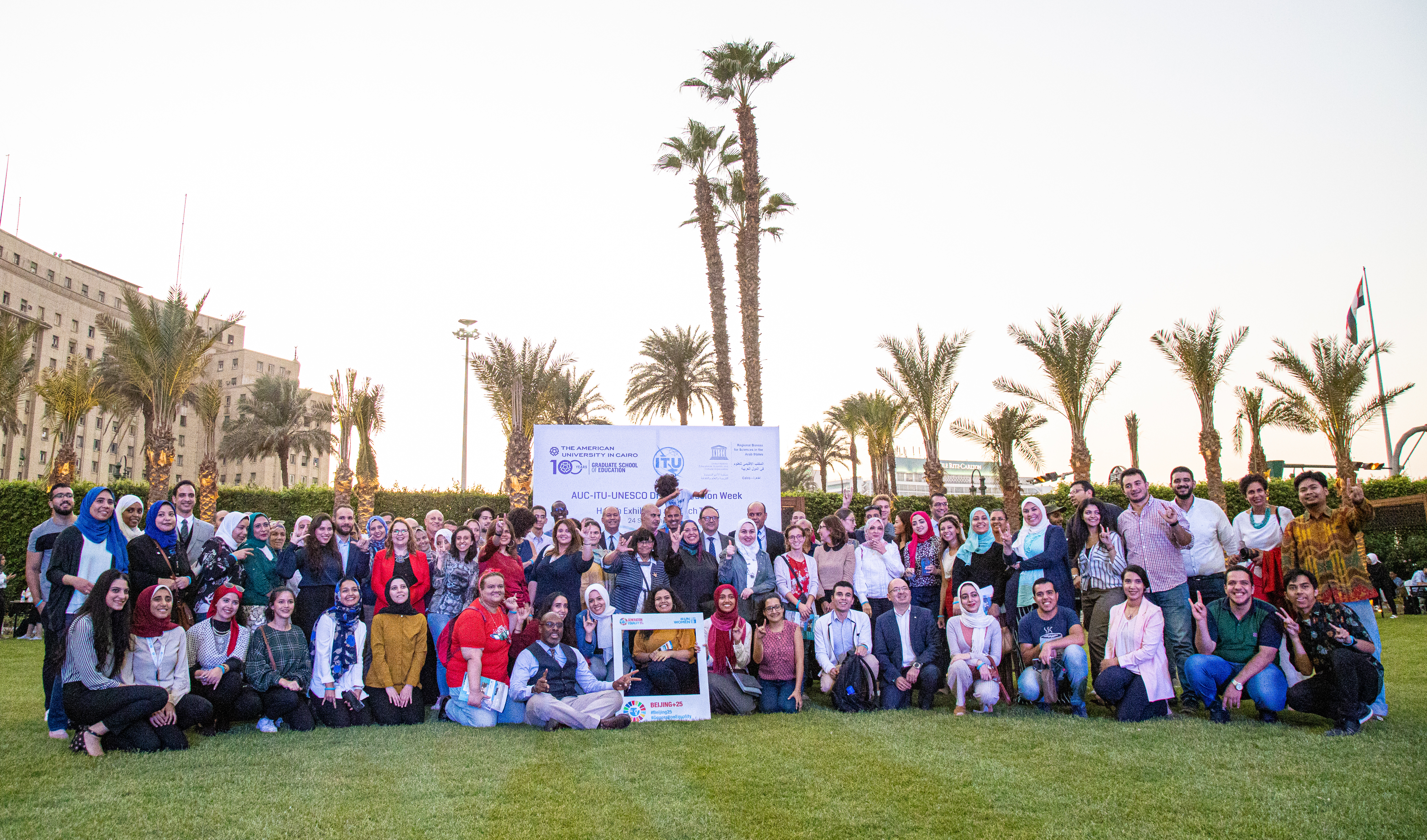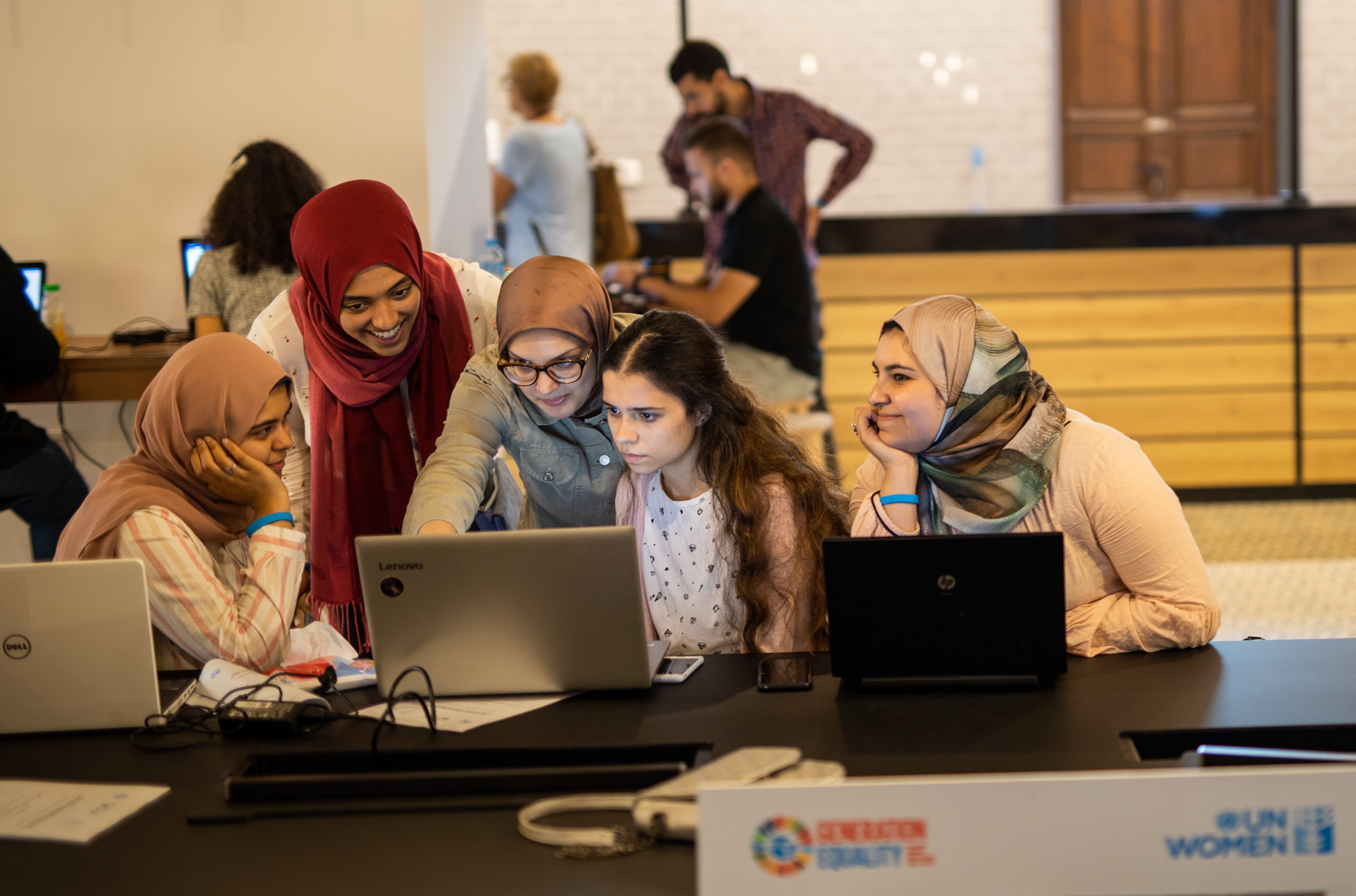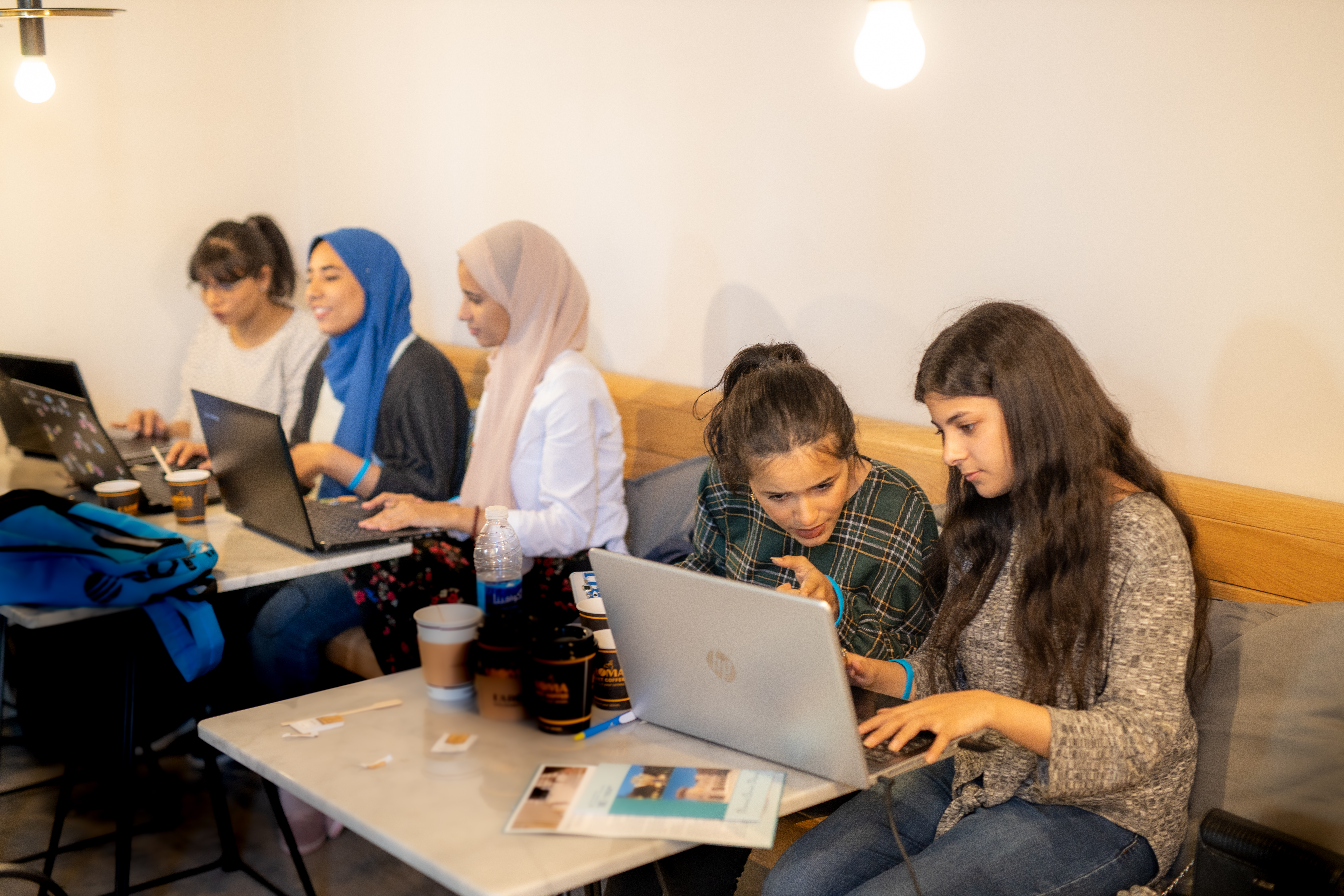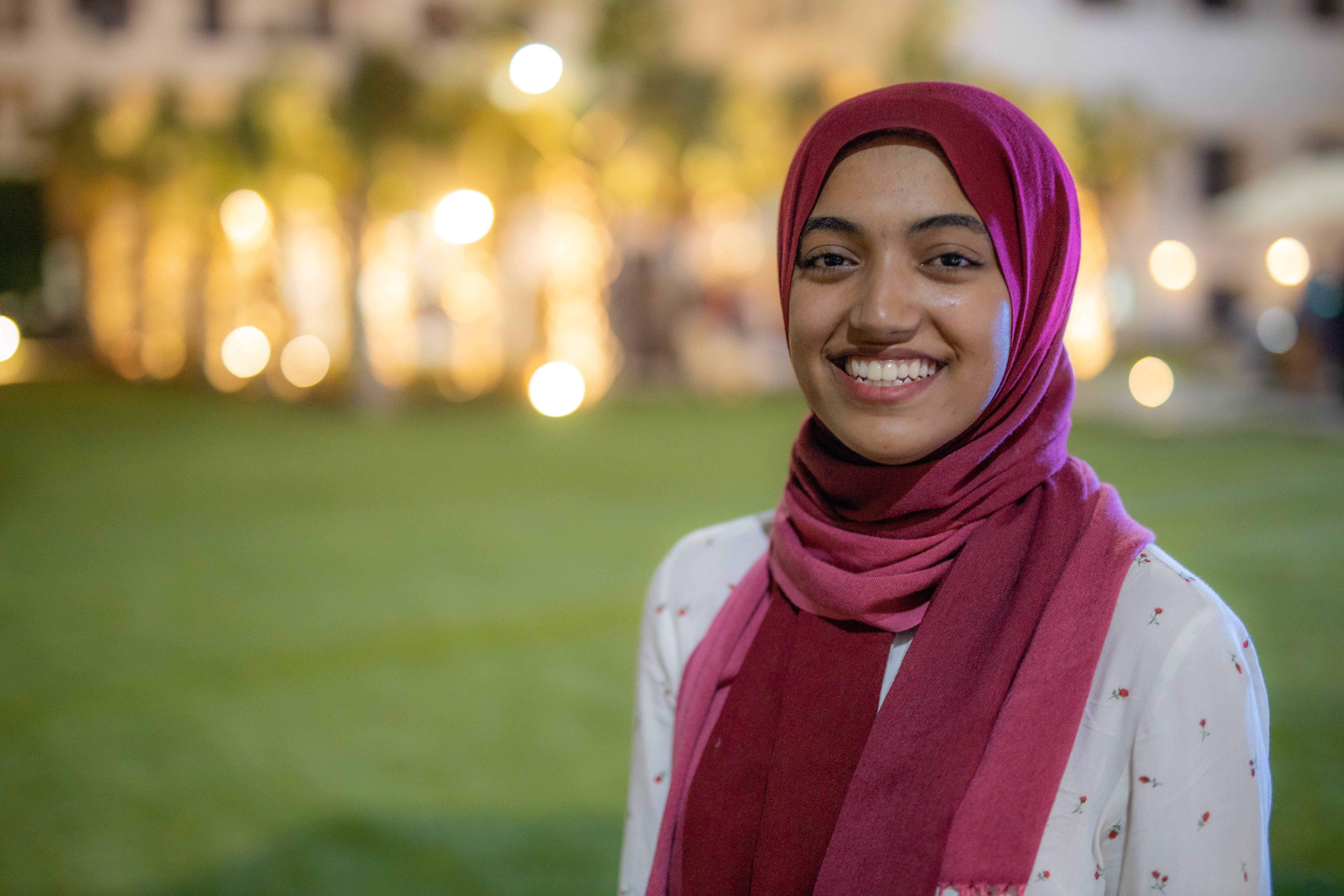Cairo youth volunteers join editathon on women’s health
Date:

Non-communicable diseases (NCDs) including cardiovascular disease, cancer, chronic respiratory disease, and diabetes are now the leading cause of deaths worldwide and represent key barriers to poverty alleviation and sustainable development.
Aiming at raising awareness of the gender specific impact of NCDs and how women can be change agents for their prevention and control, UN Women’s HerStory initiative organized a Wikipedia editathon focusing on women’s health during the 2019 ITU-UNESCO Digital Inclusion Week at the Centennial Campus of the American University in Cairo, under the theme “Health, Education and Big Data for enhancing wellbeing”.
The event was also part of UN Women’s ongoing campaign Generation Equality conducted on occasion of the 25th anniversary and review of the Beijing Platform for Action. The Beijing Platform reiterated that “women have the right to the highest attainable standard of physical and mental health” and called on Governments and other duty-bearers to provide accessible and comprehensive information around women’s health needs and ensure that health information is gender-sensitive. This recommendation is reflected also in Agenda 2030 for Sustainable Development, under which member States have committed to reduce premature mortality as a result of NCDs by one-third by the year 2030. Under SDG 5 of Agenda 2030, member States have committed to enhance the use of enabling technology, in particular information and communications technology, to promote the empowerment of women.
During the event, 70 HerStory volunteers edited, translated, researched and added 97 articles on Arabic Wikipedia focusing on women and health and NCDs, in order to contribute to making this vital information more accessible to Arabic-speaking audiences. When the data is more accessible, women are more able to take decisions for their own health and well-being.

“Gender norms, as much as an indicator for gender roles and human rights, can predict current and future NCDs risks. Women and men have different levels of exposure and vulnerability to NCD risk factors and they manifest certain NCD symptoms and risks differently,” said Emad Karim, UN Women Youth, Advocacy and Innovation Specialist.

“I really like the idea of having Arab women and girls as writers and editors in many fields that will surely benefit other women and girls in the region, and I am very proud to be part of this initiative. I am working on articles focusing on the non-communicable diseases (NCDs) like cancer, diabetes, and heart diseases in the Arab region.”
- Amal Emad, 21 years.

“Seeing our volunteers’ excitement and hard work during the workshop throughout the event, brought back memories of my first ever campaign with Herstory. It was only then that I realized how much I had missed our editathons. Not just the feeling of accomplishment that comes with them but most importantly, this feeling of being a part of something bigger than yourself. That’s what HerStory is all about for me. And that’s what yesterday felt. It was beautifully nostalgic.“
- Mariam Gomaa, Egypt
| HerStory is a youth-led initiative, supported by the UN Women Regional Office for the Arab States to produce and disseminate knowledge about gender equality issues and women and girls’ lives and contributions. HerStory is about recording human experiences from a feminist perspective, emphasizing the role of women and address the absence and exclusion of women from historical and public records in history, politics, science, technology, leadership, and religion. The Digital Inclusion Week, an initiative of UNESCO and the International Telecommunications Union (ITU) with the support of UN agencies including UN Women, was held from 22-28 September 2019 under the theme “Health, Education and Big Data for enhancing wellbeing”. |
|---|